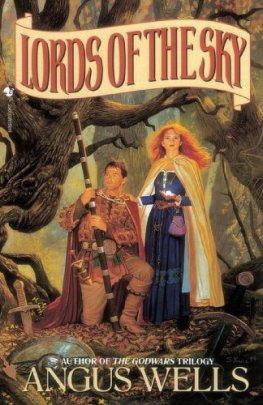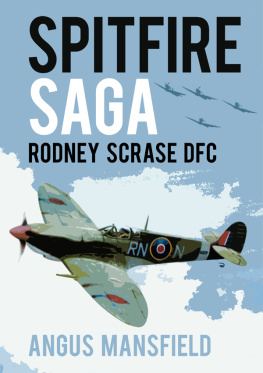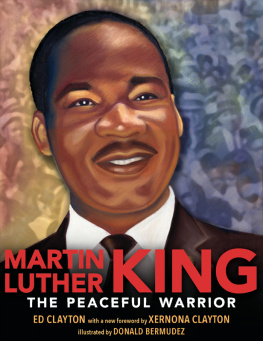Angus Donald - King's man
Here you can read online Angus Donald - King's man full text of the book (entire story) in english for free. Download pdf and epub, get meaning, cover and reviews about this ebook. genre: Adventure. Description of the work, (preface) as well as reviews are available. Best literature library LitArk.com created for fans of good reading and offers a wide selection of genres:
Romance novel
Science fiction
Adventure
Detective
Science
History
Home and family
Prose
Art
Politics
Computer
Non-fiction
Religion
Business
Children
Humor
Choose a favorite category and find really read worthwhile books. Enjoy immersion in the world of imagination, feel the emotions of the characters or learn something new for yourself, make an fascinating discovery.

- Book:King's man
- Author:
- Genre:
- Rating:3 / 5
- Favourites:Add to favourites
- Your mark:
- 60
- 1
- 2
- 3
- 4
- 5
King's man: summary, description and annotation
We offer to read an annotation, description, summary or preface (depends on what the author of the book "King's man" wrote himself). If you haven't found the necessary information about the book — write in the comments, we will try to find it.
Angus Donald: author's other books
Who wrote King's man? Find out the surname, the name of the author of the book and a list of all author's works by series.
King's man — read online for free the complete book (whole text) full work
Below is the text of the book, divided by pages. System saving the place of the last page read, allows you to conveniently read the book "King's man" online for free, without having to search again every time where you left off. Put a bookmark, and you can go to the page where you finished reading at any time.
Font size:
Interval:
Bookmark:
Angus Donald
King's man
Part One
Chapter One
I can hear the sound of singing floating across the courtyard from the big barn, thin and faint yet warmly comforting, like the last wisps of a happy dream to a man waking from deep slumber. I have left the remnants of the wedding party to their pleasures, leaving the bride Marie and her new husband Osric and dozens of their friends and neighbours to carouse long into the dark night. I have provided ale and wine, more than they could ever drink at half a dozen nuptials, and I slaughtered two of my sheep and a great sow, and all three carcasses spent the afternoon roasting over slow fires in the courtyard so that there might be plenty of meat for the newly joined couple and all their boozy well-wishers. But I slipped away from the throng when the serious drinking began and the wine-flushed carollers began to loosen their belts; I did not wish to be asked to perform alongside them. My voice is a little weaker, as is natural, now that I have reached almost sixty years of age, but I am still proud of my talent as a trouvere, a maker of fine music, and I husband my delicate throat-cords and do not choose to bellow like a cow in calf for the amusement of country-wedding drunks I who have traded verses with a king, and held noble lords and prelates across Christendom spellbound with my skill.
But, in truth, there is another quiet reason why I have withdrawn here to my private chamber at the end of the great hall of Westbury, where, with a freshly sharpened quill and new-made oak gall ink, I am committing these words to parchment I do not like Osric, the bridegroom.
There: I have admitted it. It is difficult to say exactly why I do not like him: he is a plain, ordinary man, round in the belly and with a pointed, peering, mole-like face and short chubby arms, and he will, I believe, make my widowed daughter-in-law Marie a good husband. He came here to Westbury a year ago as my bailiff, and he has rendered me good service in that office, ensuring that the manor the only one I now hold is well ordered and shows a little silver in profit every year. But I do not trust him; there is a slyness about him that repels me. His manner is furtive. I believe, in my secret heart, that he covets my position as lord of this manor, and sometimes I see him looking at me, as we eat together as a family at the long table in the hall, and I detect a glint of hatred in his tiny underground eye. It may be nothing but the foolish fancies of an old man, but I do not think so I believe that despite my kindness to him, and the fact that I have allowed him to marry my son Robs widow, Osric would like to see me hurried into my grave and himself sitting at the head of this long table, fawned on by my servants and addressed in this hall as my lord.
I will go further: I believe that he means to kill me.
Pshaw! What nonsense, you will say to yourself. The old grey-beards wits are plainly as addled as a year-old goose egg. And it is true that I am well furnished with years, and that I sometimes forget the names of these dullards around me today, and dwell too much on the bright days of the past. But I know about betrayal: in my time, I have betrayed those who placed their trust in me. And I see the look of a traitor, a God-damned Judas, in Osrics face. To strike a telling blow, one must be close to the man you are to play false; and Osric is now as close to me as ever he can be.
My death would not, of course, immediately make him the lord of this manor; if I were to die, the manor would pass to my heir, my nine-year-old grandson and namesake Alan, who is away now in Yorkshire learning the skills of a knight learning how to fight on horseback and on foot, and how to dance and sing and make verses, how to speak and write in Latin, to play chess and serve elegantly at table and innumerable other gentlemanly skills.
But a child lord is weak, and easy to control: his mother Marie would have legal authority over him, just as Osric, now her husband, would have authority over her. Who is to say what Osric might do then? The boy might have a fatal accident or be imprisoned for years in some dark place while Osric makes free with the bounty of the manor. Who can say?
I have read over the words that I have just written and it might seem to a reader that I am afraid of Osric, like a coward but I am not craven and I have shown my courage on more occasions than I care to remember. But I have decided not to strike the words out but to let the sentiments above stand, for I have made a promise that in this record of my life, this record that I now scratch out with an ageing hand, I will tell the truth, and always the truth. I do perhaps fear Osric a little; at least, I am distrustful of his intentions, and wary. And I cannot sleep at night for thinking about him and what he might do to me and those whom I love. But I can do nothing; I cannot kill him out of hand on a mere suspicion, and I cannot drive the husband of my daughter-in-law away from this manor; Marie would never allow it and who would oversee the smooth running of Westbury? No, I must endure, and watch and be always on my guard.
And I must get along with my story now, while the hall is empty and quiet, for this tale is not about Osrics darkling ambitions, nor about Marie nor even about little Alan, the delight of my remaining years it is about myself, and the adventures that I had in the time of good King Richard, whom we called the Lionheart, when I was a young man, full of green sap, strong in body and mind, fearful of almost nothing save the wrath of my lord, Robert Odo, the Earl of Locksley who was better known to the common people of England as Robin Hood a savage warrior, a lawless thief, a Church-condemned heretic and, may Almighty God forgive me, for many long years, my good and true friend.
The sentry was young, a boy of no more than sixteen or seventeen summers, but he was quite old enough to die. I watched him as he walked up and down the dark rutted track that led north from my position, up to the brow of the hill; and I noted that his air in these, his last precious moments on this Earth, was one of resentful boredom. He had been on duty for perhaps an hour, I reckoned, judging by the position of the moon: I had seen him slouch up from the camp about midnight, yawning and stretching, and grudgingly take over from an older man, a squat warrior who clapped him hard on the shoulder with joy at his relief and hurried off to his warm blankets in one of the scores of tents that littered the field below the muddy track and made up the enemy encampment before Kirkton.
The young sentry was not due to be relieved for another two hours but by then, God willing, he would be dead. I could make out his young face in the faint moonlight, a pale patch in the darkness, as he trudged towards me down the track; as he came closer I could see that he was ill-favoured, with a thin, well-pimpled visage: he looked like a sulky boy making his reluctant way to church when he would rather be at play.
Moodily he booted a stone out of his path and it skittered alarmingly near to where I was lying, in total darkness and black-clad from head to toe, face thickly smeared with greasy mud, in the lee of an old stone wall that ran at right angles to the track. For a panicky moment, I thought he would follow the stones path straight towards me, coming off the track for another kick at the pebble that had landed only a few feet from my hiding place. If he had done that, he would have seen me for sure, or sensed me somehow, and Id have had to launch myself at him, from the front, in full view, and try to drop him before he could make a sound. That would have been difficult. To be truthful, it would have been nigh on impossible, as I was tethered by a rope around my waist to a large, heavy, oozing sack. I tried not to think about its grisly contents.
Font size:
Interval:
Bookmark:
Similar books «King's man»
Look at similar books to King's man. We have selected literature similar in name and meaning in the hope of providing readers with more options to find new, interesting, not yet read works.
Discussion, reviews of the book King's man and just readers' own opinions. Leave your comments, write what you think about the work, its meaning or the main characters. Specify what exactly you liked and what you didn't like, and why you think so.









